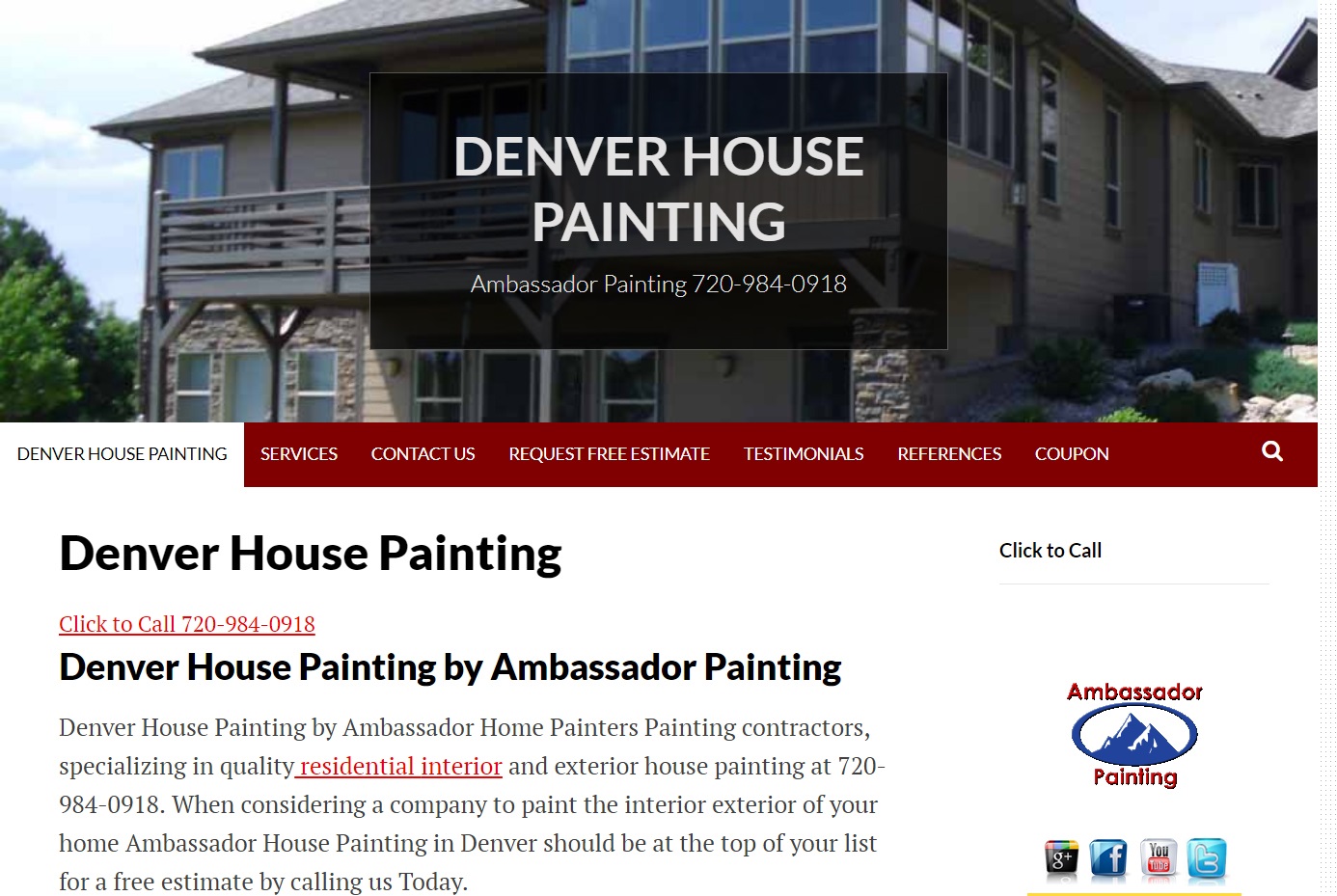Look for signs of a good contractor.Product knowledge and clear communication are the signs of a good contractor. “Look for a pro who recommends high-quality paints,” says Rance. “They should prioritize finish and durability over speed of application for a long-lasting paint job.” And, notes Bunting, a good contractor will respond to you in a timely manner.
I was taught to paint by a professional and when estimating the amount of paint needed, I always allow for a second coat just to make sure of coverage. We interviewed a painter who tried to tell me I bought poor quality paint without knowing where I purchased it, and stated he would have to buy all new paint. He had not seen the cans and was just guessing so I asked him where I should buy paint from now on. It was the same place I had purchased my paint and he wanted to charge me an extra 20 a gallon more than what I paid for. Needless to say, I have interviewed numerous painters and they are not all honest.
I totally agree with this as well. I think every time I have read Angie's List reports, they are inaccurate and not researched enough. I had COMPLETE faith in Angie but lately I am hesitate on reports. I would check your local hardware store or even your neighbors to get a recommendation for painters. If you liked what you saw, you can be stress free with your results. I live in Texas and I have borrowed my hardware store opinion bc that seems to be the place most of the contractors or painters come to buy stuff for the jobs. If your neighbors painters, contractors, electricians and plumbers have shown good results, stress free you. I have been stress free with results, glad I asked for other opinions.Don't forget, the Hardware Store knows if that person is trustworthy and honest, their accounts would be shut down.
Our workers will arrive promptly every day to commence the exterior house painting services and make sure to clean up the property at the end of each shift. The painters we work with are college-aged students who have received extensive training on house painting services and business management skills alike. They model their work after this five-step system that is proven effective: home Colour Selection
If the point of hiring a well established, experienced, reputable painting contractor is to secure the professionalism and trust suggested to be inherent with that choice, then I would EXPECT that professionalism and experience to include the ability to make the proper and correct calculations for labor and materials for a fixed price quote, and there should be NO reason for the contractor to put the cost burden of their miscalculation on the consumer. http://www.youtube.com/watch?feature=player_embedded&v=b6_WEt9k_Hw
FIRST: Unless you can stay in business painting 1 bedroom at a time for $500-$1000, which you can't, then you will be taking on several thousand dollar contracts that require thousands in Labor and Materials to fulfill the order. Multiply that by 3-4 jobs at one time or in our case 15-20 jobs at a time, YOU NEED TO TAKE DEPOSITS!!! It is horrible business not to take deposits. There are many jobs where its not possible to get a deposit and that is built into or pricing accordingly. If we are not getting a deposit, there is a finance charge built in, contractors are not banks. If you don't have a good feeling about a deposit, your hiring the WRONG CONTRACTOR. Hire people you know or well established businesses.
I am a painting contractor and have been since 2001. Make sure the estimate provides in writing: What is EXCLUDED as well as INCLUDED. It should state the manufacturer and type of paint going to be used. Estimate says ALL LABOR AND MATERIALS. My estimates to my customers say "guaranteed coverage" eliminates the conversations of 1 coat vs 2 coat. I have my customers submit colors 5 days prior to start date. Customers need to inform me if they are going to use pure white, dark reds, oranges, and bright yellows they need to inform me in that 5 day window, so I can adjust my pricing for 3 coats. Although this more uncommon now than years past because a lot of paint manufacturers have primer with paint products. Let the contractor know if your doing accent walls. This takes longer to cut in straight lines and it requires the contractor to purchase more paint. If you add anything on the scope of work have the painter write out the description and cost prior to them doing the work. Have the estimate say how many days it will take to perform the work. Ask how many workers will be doing the job. Make sure to enforce that number of workers their everyday until the job is complete. Do not give final payment until you do a final walk through. Walk the job when its almost complete and point out areas that you want fixed prior to the contractors final walk through. Its best to do while the workers are still in that particular area as they will have tarps down and areas covered and it will be easier for them to take care of. Purchase a roll of blue tape and stick it to areas that you want fixed. This is called a punch list.
All exterior painting projects are customized to your specifications. You may have a color in mind, in which case we can execute the project according to your vision. You may also need professional assistance in choosing a color. For this we provide a free consultation with a color professional, who can look at your home and your neighborhood to suggest colors that may work for your house.
The obvious trick here is for unaffiliated contractors to use the BBB, PDCA, Chamber or other organizations’ logos without being a member. Other tricks include claiming membership when that membership has expired or even make up fake organizations that sound good. The BBB continuously goes after unscrupulous companies that attempt to trick customers into thinking they are members. Nearly every organization has a web page these days; if you suspect something, do a little searching to find out the truth.
exterior Painters
Climate is another factor to consider. Sunlight, wind, rain and salty weather can all wear out exterior paint. Oil-based paint is durable against wind, rain and temperature changes, but sunlight tends to degrade it. Alkyd paint chalks and sheds very thin layers when it begins to wear. Latex paint is the more durable option for very sun-drenched and relatively dry climate areas. Latex paint with high vinyl content should be avoided, however. Acrylic resin is by far the more durable binder for outdoor latex paint.
When coverage is difficult to estimate, add more rather than less when doing DIY wall painting. You can always pour the leftover back into cans. For large jobs, use the bucket and a roller screen rather than a roller tray. It’s much faster to load your roller with the screen than to use a roller pan. Simply dunk the roller into the paint bucket, then roll it along the screen until it stops dripping.
I was taught to paint by a professional and when estimating the amount of paint needed, I always allow for a second coat just to make sure of coverage. We interviewed a painter who tried to tell me I bought poor quality paint without knowing where I purchased it, and stated he would have to buy all new paint. He had not seen the cans and was just guessing so I asked him where I should buy paint from now on. It was the same place I had purchased my paint and he wanted to charge me an extra 20 a gallon more than what I paid for. Needless to say, I have interviewed numerous painters and they are not all honest. house Paint Colors
I'm an architect and my firm routinely specifies interior finishes for projects so I thought I'd contribute a professional's perspective on the issue of how many coats of paint are deemed "acceptable". The fact of the matter is the average consumer usually isn't a paint expert and can't be expected to know about all the factors that impact coverage. That knowledge is considered "means and methods" and in a court of law, the responsibility lies with the painter or general contractor, not the consumer. What the consumer should be concerned about is the final result-does it look good and is it what you expected? The simplest way to communicate this to your painter is to stipule in your written agreement that the number of coats will be "as required to cover". That way all the guess work about what kind of primer, how many coats, how color affects the scope of work, etc., is removed from the consumer's responsibility and resides where it belongs-with the professional. In the contract that's why retention is always a good idea-typically 10% is withheld from payment until the job is completed to the satisfaction of the customer. Of course in return you as the customer have to be reasonable about what constitutes a completed job. Just my $.02.
Professional painters provide estimates primarily based on the square footage of your home. Painting an average home between 500 and 1,500 square feet can cost between $1,000 and $3,000. However, factors such as number of stories and ease of access can also affect the overall price. Homeowners report that the average cost to paint a house nationally is $2,581 and most pay between $1,714 and $3,682.

